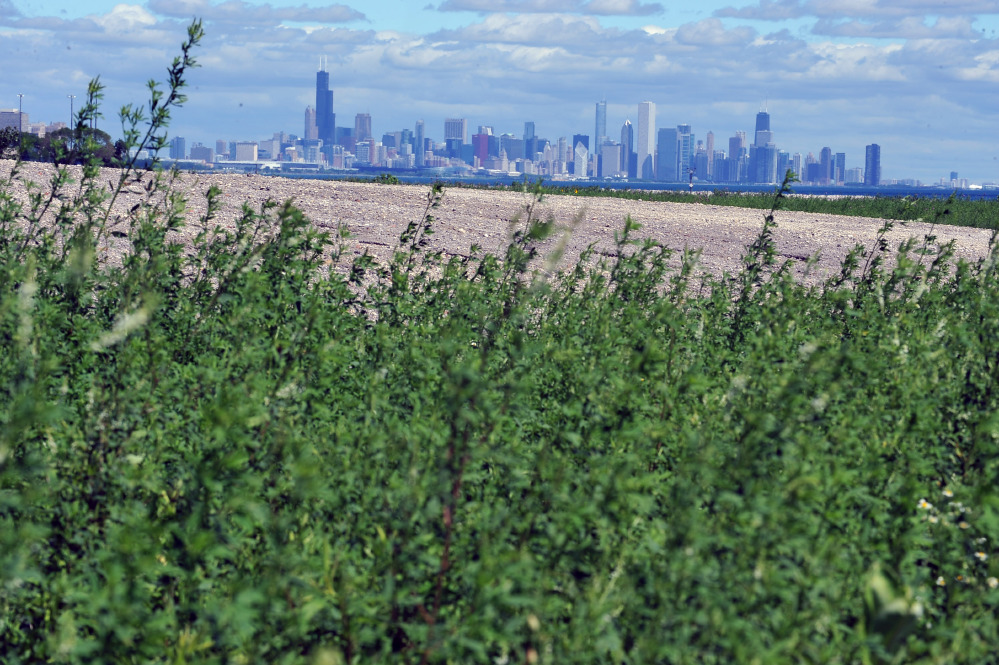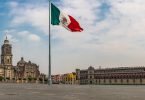Like luck or courage, confidence is a rare commodity. It often takes years of hard work for a person to build up the necessary level of confidence to pursue an endeavor — a sport, a career, an enterprise — and to excel at it. Yet confidence can be sapped by failure, both real or imagined, and what was once gained is lost.
During the Great Depression, President Franklin D. Roosevelt’s greatest accomplishment, arguably, was instilling in the American people a sense of confidence that things would get better. General Dwight D. Eisenhower, after he was named Supreme Allied Commander in the European theater, always made sure that he exuded a grinning confidence in front of the troops.
OPINION
To state that far too many Chicago neighborhoods have fallen into neglect is to state a well-worn truism in Chicago political discourse. Everyone knows how to mouth the words. But the problem with the neighborhoods is not merely economic, political, or rhetorical. I would argue the problem results chiefly from a crisis of confidence.
When an economic crisis hits a region, city, or neighborhood and jobs disappear (think of the decline of the American steel industry), the residents of those neighborhoods lose confidence in themselves, their futures and their neighborhoods (think of South Chicago, South Deering and the East Side). As neighborhoods deteriorate — unemployment, crime, violence — potential investors, businesses, and homeowners (who let us remember, pay property taxes), lose confidence in those areas as well, and stay away. And despite what they might say and promise, politicians lose confidence and write-off some neighborhoods in favor of others.
Unfortunately, the situation for many parts of Chicago’s South Side is dire, so much so that the rebuilding of confidence — on the part of residents and others — cannot proceed in increments; instead, bold steps need to be made.
The Chicago Lakeside project on the former U.S. Steel site, (centered at 87th Street and the lakefront), seems to be moribund, if not dead in the water. When finished — if it’s ever started — it will encompass thousands of new single-family homes, retail and park space and a marina, among other features.
When it was first announced, quite some time ago, I wavered, as I would rather have had that land reclaimed as an urban nature preserve. Also, I felt that such a project would result in the gentrification of the surrounding neighborhoods as real estate values soared. But the neighborhoods there are in desperate need of economic development, and have been for decades, and the project has imagination and scope. Although this is a private project, not a public one, I would like to ask Mayor Emanuel: Why isn’t it proceeding with brio? Enquire, assist, and proceed!
Further south is the site of the former LTV/Republic Steel works. Bordered on the west by the Calumet River, the east by Avenue O, and roughly 122nd Street to the south and 114th Street to the north, it encompasses, by my very rough estimate, 150-plus acres of … nothing. As with the U.S. Steel site, I had hoped that this location would have been converted to green space and linked with nearby Wolf Lake and Lake Calumet, rather than see it home to a once-proposed coal-to-natural gas plant to be operated by Leucadia National Corp.
Across the Calumet River, in nearby West Pullman, is the 10-megawatt solar energy project called Excelon City Solar. The site takes up only 41 acres of what had been empty industrial space. The LTV/Republic Steel site could easily contain a similar clean energy project, attendant green space, as well as, perhaps, a Level I trauma center that the South Side needs as desperately as it needs economic development. Or, perhaps, a manufacturing campus, focusing on green energy components, such as solar panels, wind turbines, and the like.
In order to economically revive the South Side, and restore a sense of confidence in and towards those neighborhoods, their residents and the city as a whole (as well as with the bond rating agencies), Mayor Emanuel needs to focus his time, talents and energies on assisting in the development of these properties, which would, I believe, dwarf the combined economic potential of the Lucas Museum and the Obama Library, and over a longer period of time. Further, the mayor should use the weight of his office to assist the residents of those neighborhoods in threshing out Community Benefit Agreements — pertaining to jobs, community investment and so forth — with any current or future developers.
In short, the mayor and the denizens of City Hall should look at the economically depressed neighborhoods I’ve talked about here as opportunities, not liabilities: opportunities to rebuild and to reinvigorate the South Side, the city, and the region. That is, if the mayor has the confidence, and political courage, to do so.
And perhaps, a bit of luck.
John Vukmirovich is a writer and researcher who lives in Chicago.
ARTICLE 2 OF 5 IN PROGRESS.
They fought the good fight abroad and at home
While national holidays are public in scope, our recollections of them are personal, private. My childhood memories of Memorial Day are entwined with roses.
For all my years at the family home on the far Southeast Side, our alleyway fence would be laved over by a profusion of quarter-sized rose blossoms. Those flowers of remembrance would start to bloom near the end of May and into early June, creating a pink and bright-green wave that seemed suspended in the air.
OPINION
Memorial Day back then still carried all of its solemn airs, as World War II was only two decades past, Korea one, and Vietnam was ongoing. Our house would be quiet, as my father had lost a brother at Anzio, in 1943, but as his brother was buried in Italy, my father and his family were denied the emotional release, the sense of purpose completed, from visiting his grave. (I really need to make the trip over there, before the purple hour).
Beyond those roses, some six blocks away, was a field, and a history lesson. On Memorial Day, 1937, 10 steelworkers were shot dead in that field, cut down like sheaves of wheat, by the Chicago Police. They had been part of a large group of vocal, yet unarmed, pro-union protesters who were demonstrating at the main gate of Republic Steel at 118th and Burley.
My father was 16 at the time, and although he lived on the other side of the Calumet River along Torrence Avenue, word of the massacre spread like a prairie fire, even across the water. Years later, after he came back from the war — he served four years on a much-storied destroyer, the USSNicholson (DD-442) and returned a battle-hardened salt — he himself worked at Republic Steel, and was a respected grievance committeeman, defending the rights of his fellow union workers.
Starting in the late 1960s, my father taught me the history of that murderous event, telling me to never forget what happened there. Decades later, I acquired a copy of the black and white footage of the event, images shot by a crew from the Paramount newsreels. I watch it every Memorial Day. Unfortunately, my father had passed and never had the chance to view it. My mother did though, and she was appalled. And she wept.
To say that Memorial Day has changed would be the proverbial understatement. Thankfully, my father taught me the importance of maintaining family graves. When I go to the cemeteries nowadays, so many graves of men who fought in the war, returned, and died still fairly young, are overgrown, seemingly forgotten.
For me, Memorial Day will always be a day of reflection. What did they all have in common, those men and women who marched across that field on a hot, sunny day in 1937, and my father and his shipmates who fought and won WWII, those who died and those who came home to fight other battles? They all believed in a better world, a world of justice, equal opportunity, mutual respect, and peace.
But do we have that better world? Our present world with our constant fascination with, and at times celebration of, violence? Our blind faith in technology to solve our problems, over and against any faith in ourselves? Our marginalizing of the working classes and the demonizing of unions? Our allowing of public interests, the commonweal, to be sold off to private interests? Our mind-numbingly stupid acceptance of our over-administrated, high-tech, high drek, and militarized culture? And on the last note, our political leaders’ proclivity in keeping us engaged in a state of seemingly constant war somewhere?
There is a scene in The Odyssey, where Odysseus, on his voyage home to Ithaca, stops to sacrifice some sheep, and from their pooled blood, he summons up the spirits of those who had crossed over to Hades while he had been away at war. If I were to be that bold, and summon the shades of the men and women who I have been writing about here, what would they say about us and what we have done with their ideals, their dreams, and their sacrifices? Would they not turn away, dismayed, wondering if we were the ones who were dead, not they?
John Vukmirovich is a writer and researcher who lives in Chicago.







